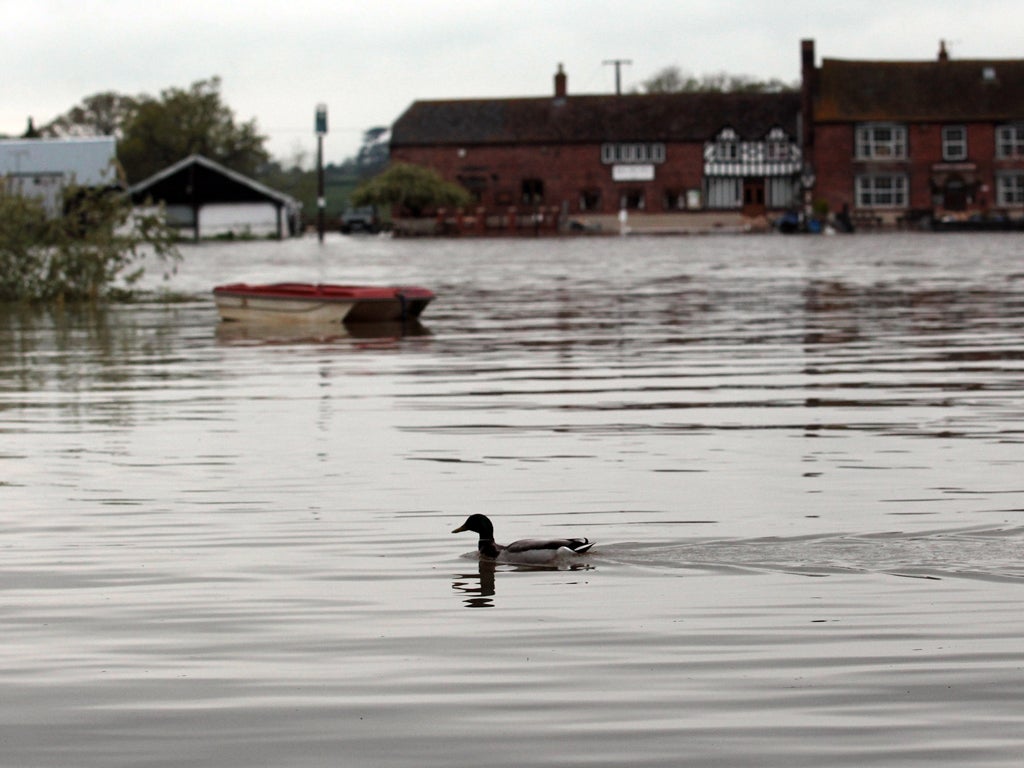Record April showers end drought in 19 counties
The hosepipe bans have not been lifted just yet, but river levels are returning to normal

Your support helps us to tell the story
From reproductive rights to climate change to Big Tech, The Independent is on the ground when the story is developing. Whether it's investigating the financials of Elon Musk's pro-Trump PAC or producing our latest documentary, 'The A Word', which shines a light on the American women fighting for reproductive rights, we know how important it is to parse out the facts from the messaging.
At such a critical moment in US history, we need reporters on the ground. Your donation allows us to keep sending journalists to speak to both sides of the story.
The Independent is trusted by Americans across the entire political spectrum. And unlike many other quality news outlets, we choose not to lock Americans out of our reporting and analysis with paywalls. We believe quality journalism should be available to everyone, paid for by those who can afford it.
Your support makes all the difference.April's record rainfall has brought much of England out of drought status, the Environment Agency announced today.
The heaviest “April showers” since records began in 1910, combined with a similarly sodden beginning to May, have allowed official drought status to be lifted for 19 counties in the South-west, the Midlands and Yorkshire, the agency said.
However, much of eastern and southern England is still in drought after two extremely dry winters, while hosepipe bans imposed five weeks ago remain in place, with no sign of them being lifted in the near future.
The downpours of the last month have restored flow levels in many rivers – in half the sites monitored by the agency, flows which had dropped to unusually low levels by March are now at levels which are notably or exceptionally high. Similarly, water levels in many previously depleted reservoirs are also recovering.
The exception remains groundwater levels, which at nearly half the sites monitored by the agency remain “exceptionally” low.
“Low groundwater levels remain a concern across many parts of England, with many still at a similar level to those in 1976 and unlikely to return to normal levels before the winter,” Dr Paul Leinster, the chief executive of the Environment Agency, said. “A return to a long period of dry weather would increase the risk again.”
But he added: “The recent record rainfall has eased pressure on water resources in some parts of England, helping levels in rivers and reservoirs to recover and providing relief to farmers, gardeners and wildlife.”
Official drought status was today lifted for South Yorkshire, East Yorkshire, Cornwall, Devon, Dorset, Somerset, Bristol, parts of Gloucestershire, parts of Hampshire, most of Wiltshire, Nottinghamshire, Leicestershire, Derbyshire, Staffordshire, West Midlands, Warwickshire, Shropshire, Worcestershire and Herefordshire. This means that water restrictions such as hosepipe bans are unlikely to be imposed in these areas over the summer.
The remaining area in drought is south and west of a line from Lincolnshire to Sussex, taking in Oxfordshire, where hosepipe bans imposed by seven water companies remain in place. Thames Water, England’s largest water company with nearly nine million customers, warned that it was too early to talk of lifting the ban. “Despite all the recent rain, we still have a serious groundwater shortage, and we could yet have a long, hot summer, so, much as we’d love to, it would be irresponsible for us to lift the hosepipe ban just yet,” Richard Aylard, Thames Water’s sustainability director, said.
However, the firm said it could now rule out applying for a Drought Order allowing it to impose more serious restrictions on water use.
Temporarily, at last, Britain is on course for a reprieve from the wet weather: a dry weekend is now expected, after the latest band of heavy showers brought flash flooding and rising river levels as it moved across the North of England.
Join our commenting forum
Join thought-provoking conversations, follow other Independent readers and see their replies
Comments